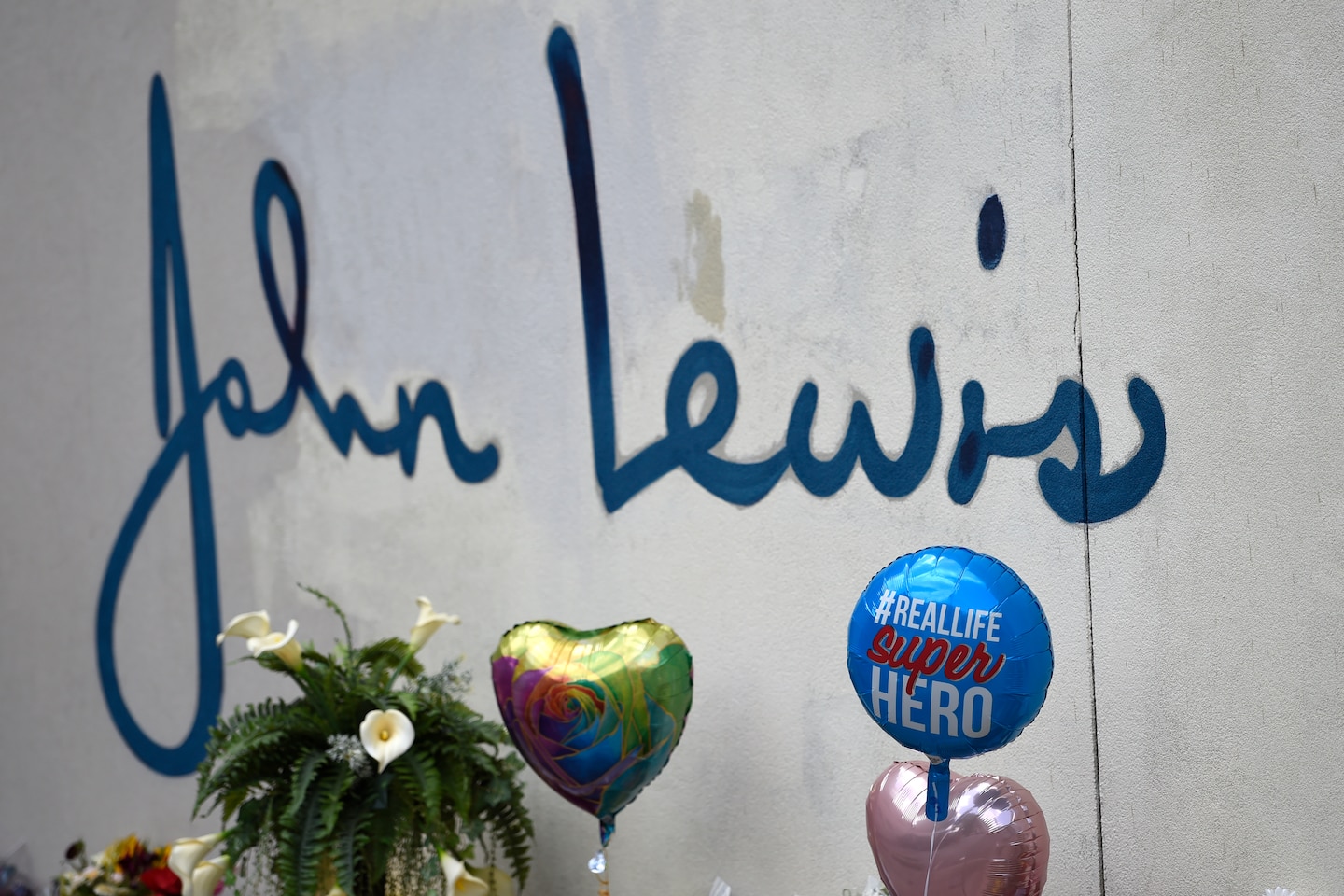John Lewis was a pillar of strength for those fighting to change the Washington NFL team’s name

They challenged one another to see who came up the poorest. Whose family had newspaper or precious Sears catalogue pages as wallpaper? Who had the luxury of two-by-fours for a bench in the outhouse?
But the richness of those meetings over many years arose in 2013, when legislators, led by Faleomavaega (D) and endorsed by Lewis (D-Ga.), crafted a bill that would cancel the federal regulation of trademarks using the Washington pro football team’s name — and would prevent the registration of future trademarks of the name, because of its opprobriousness. The bill, H.R. 1278, was called the Non-Disparagement of Native American Persons or Peoples in Trademark Registration Act.
“The impact was that members of Congress stepped forward and said, ‘We think this is what the law should be and this is what Congress intended,’ ” Harjo, the lone surviving member of The Poor Kids’ Club, told me Sunday. “That was a pretty important statement.”
The bill failed to get a hearing in the House. But with his signature on it as an icon of the civil rights movement, Lewis, who died Friday at 80 after a six-month battle with cancer, legitimized the decades-long fight of native people against their image being misrepresented and degraded in sports.
Athletes took to social media in the hours after Lewis’s death to praise his dedication to racial justice. It spanned from his being beaten by a policeman on the Edmund Pettus Bridge in Selma, Ala., in 1965 to standing on the Black Lives Matter street art in the District just a few weeks ago.
But Lewis’s most indelible mark on the sports world will be the erasure of the Washington football team’s name, which came just last week in the tidal wave of racial reckoning spurred by protests of George Floyd’s killing by Minneapolis police.
Lewis embraced native causes from the moment he arrived on Capitol Hill in 1987.
“I expected him to,” Harjo said, “knowing that he could attract other people and be a leadership figure. He understood that very well.”
Lewis’s support helped give Harjo some heft when in 1992 she filed the first action against the Washington team’s name with the U.S. Patent and Trademark Office’s Trademark Trial and Appeal Board. The three judges ruled in Harjo’s favor, but an appeals court reversed the decision on a technicality.
Lewis never abandoned native causes, though.
“When we’re doing the bill for a Native American soldiers’ memorial at Little Bighorn and we were trying at the same time to drop the name of Custer [from the site], it was kind of a big fight in Montana,” Harjo said. “I asked for John Lewis’s help in all that.”
“What good friends do when they have a vote and you don’t is sometimes they take you to the private lunch room of the Senate or the House,” Harjo said. “And it’s so you’re seen with them and they can introduce you to someone or they can refer someone to you.
“John was one of those friends. John would say, ‘Come have some lunch with me and get some votes.’ He did that with [H.R. 1278].”
Lewis was in Faleomavaega’s office when they started drafting the bill.
“It meant so much to all of us,” Harjo recalled.
Harjo stopped for a moment. She realized she had been referring to Lewis as John.
“This is the first time I’ve said ‘John’ so much,” she said. “I always called him Congressman. And he didn’t like it. He was genuine about that. He really wanted to be John.”
It wasn’t lost on Harjo that the owner of the Washington franchise whom she was trying to convince was more than a generation younger than Lewis but had a reputation for having everyone address him as Mister.
“John didn’t want there to be a title barrier,” Harjo said. “He just didn’t want there to be barriers. That’s why so many people loved him. He spoke to everyone’s heart.”
Harjo was elated last week upon hearing something she and others worked for since the 1970s had finally come to pass: the removal of the racial slur that was the name of the pro football franchise for 87 years. She recalled the work of Amanda Blackhorse, to whom she passed the legal battle. She remembered plaintiffs such as Vine Deloria Jr., who joined her in that 1992 suit.
But, she said, “I thought of [Lewis] almost immediately.”
Harjo said Lewis’s best-selling book “Walking With the Wind: A Memoir of the Movement” is on her to-read list.
“But you know what I have read? His graphic novel, ‘March,’ ” she said.
“And rightfully so,” Harjo said. “He’s our superhero.”
Kevin B. Blackistone, ESPN panelist and visiting professor at the Philip Merrill College of Journalism at the University of Maryland, writes sports commentary for The Washington Post.
More from Kevin B. Blackistone:






